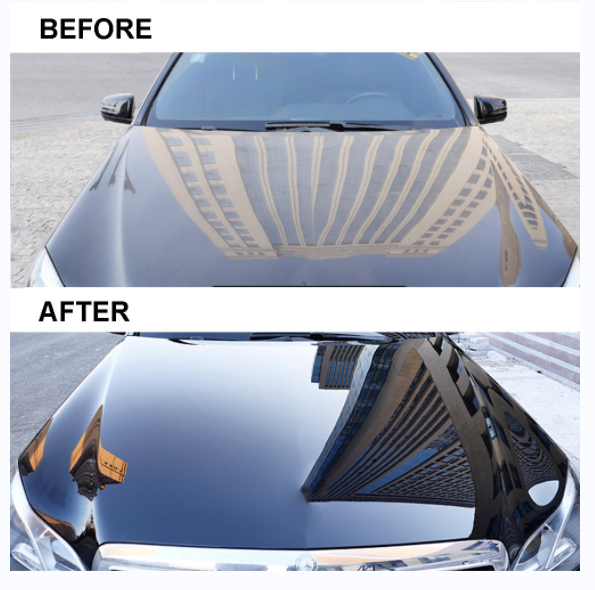Experience top-rated auto detailing for paint restoration.
Experience top-rated auto detailing for paint restoration.
Blog Article
A Comprehensive Guide to the Types of Ceramic Layer on the Market
Ceramic finishings have emerged as an essential option throughout numerous sectors due to their special residential or commercial properties and applications. From silica-based formulations known for their toughness to crossbreed choices that merge numerous benefits, the selections offered can be frustrating. Comprehending the nuances of each kind, including their certain advantages and suitable use cases, is crucial for making educated choices. As we explore the distinct attributes and applications of these coatings, the effects for performance and long life come to be progressively evident, questioning regarding which kind may ideal fit your needs.
Comprehending Ceramic Coatings
Ceramic coverings are advanced safety solutions that have obtained popularity in various sectors, especially in auto and aerospace applications. These coatings contain a fluid polymer that, when healed, forms a durable, hydrophobic layer externally of the substratum. This layer supplies boosted resistance to environmental contaminants, UV radiation, and chemical direct exposure, therefore prolonging the life and visual charm of the underlying product.
The basic element of ceramic layers is silica, which contributes to their firmness and sturdiness. The application process normally involves surface preparation, application of the covering, and curing, which can be attained with warmth or UV light. As soon as treated, ceramic finishes exhibit exceptional bonding homes, permitting them to stick strongly to a variety of surface areas, including steels, plastics, and glass.
Along with their protective attributes, ceramic layers also offer ease of upkeep. Their hydrophobic nature decreases the adherence of dirt and gunk, making cleaning easier and much less frequent. On the whole, the adoption of ceramic layers represents a significant improvement in surface protection innovation, supplying both functional and visual benefits throughout multiple fields.
Types of Ceramic Coatings
Numerous sorts of ceramic coatings are readily available, each developed to fulfill certain performance requirements and applications - ceramic coating sarasota. One of the most typical kinds consist of:
Silica-based Coatings: These coatings largely include silicon dioxide and are recognized for their durability and chemical resistance. They are extensively utilized in auto and commercial applications.
Titanium Dioxide Coatings: Prominent for their photocatalytic buildings, titanium dioxide coatings are typically used in settings where self-cleaning and antifungal residential or commercial properties are desirable, such as in structure products and automobile surfaces.
Zirconia Coatings: Characterized by their high-temperature stability and thermal resistance, zirconia finishings are utilized in applications such as wind turbine engines and high-performance auto parts.
Alumina Coatings: Showing exceptional solidity and thermal stability, alumina finishes are frequently utilized in wear-resistant applications, consisting of cutting devices and industrial machinery. - scratch repair sarasota
Hybrid Coatings: Combining the buildings of various materials, hybrid finishes supply improved efficiency features, making them ideal for distinct and demanding applications.
Each type of ceramic coating offers distinct objectives, permitting individuals to select one of the most suitable remedy based on details ecological conditions and efficiency needs.
Benefits of Ceramic Coatings
Ceramic coatings, in specific, deal countless advantages that make them significantly popular amongst producers and consumers alike. These layers are immune to scratches, chemicals, and UV rays, making sure that the underlying surface area remains protected over time.
Along with longevity, ceramic coverings supply superb hydrophobic buildings, enabling for simple cleansing and maintenance. This water-repellent nature lessens the adherence of dirt, grime, and other contaminants, which can extend the aesthetic charm and performance of the surface. In addition, ceramic coverings can significantly improve thermal resistance, making them excellent for applications that sustain high temperature levels.

Application Refine
When using ceramic finishes, a careful method is important to accomplish optimum outcomes. The application process typically begins with extensive surface preparation. This involves washing, decontaminating, and brightening the surface to remove all pollutants, consisting of dirt, grease, and prior waxes or sealants. A clean surface area ensures appropriate attachment of the finish.
When the surface is prepped, the following step is to use the ceramic finishing. This can be done using an applicator pad or a microfiber towel, making certain even protection. It is essential to operate in tiny sections to maintain control and avoid premature treating. The covering needs to be applied in slim layers, as thicker applications can result in unequal coatings.
After application, the finishing calls for a specific curing time, commonly ranging from a couple of hours to a complete day, depending on the item. Adhering to these steps carefully will make the most of the performance and longevity of the ceramic finish, providing a resilient protective layer for the surface.
Upkeep and Long Life
To make certain the durability and performance of a ceramic covering, normal upkeep is page vital. Ceramic coverings, understood for their durability and protective qualities, call for particular treatment you can try these out regimens to maximize their life expectancy and performance.
In addition to normal washing, periodic examinations are crucial. Seek signs of wear or damage, such as hydrophobic properties decreasing or surface flaws. If essential, a light gloss might be put on renew the layer without stripping it away.
Moreover, the application of a booster spray can boost the layer's hydrophobic effects and restore its gloss. This is specifically advantageous for finishes that have actually remained in usage for an extensive period. Eventually, by adhering to these maintenance methods, one can substantially extend the life of a ceramic layer, ensuring that it remains to provide optimum defense against ecological aspects and keep the visual charm of the vehicle.
Conclusion

Report this page